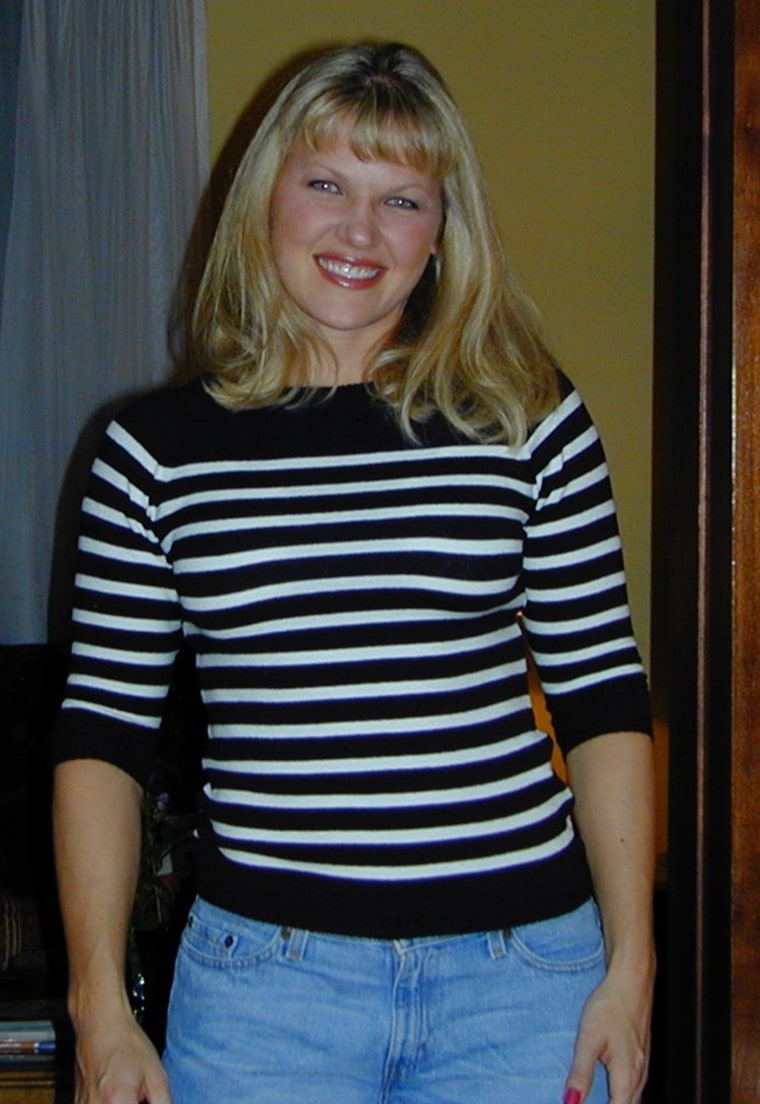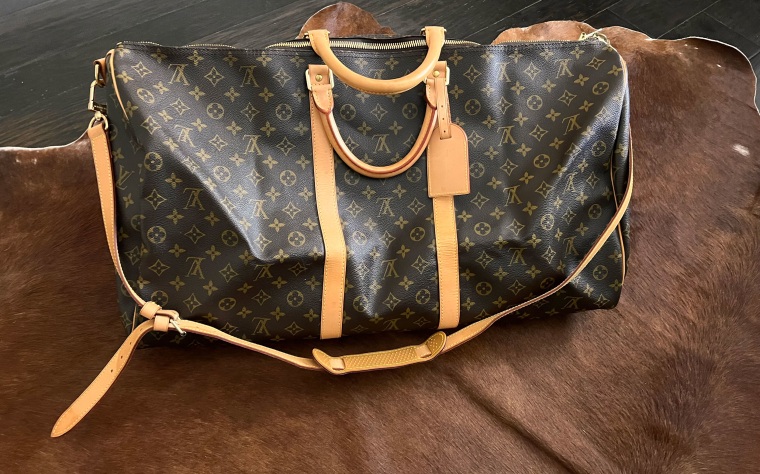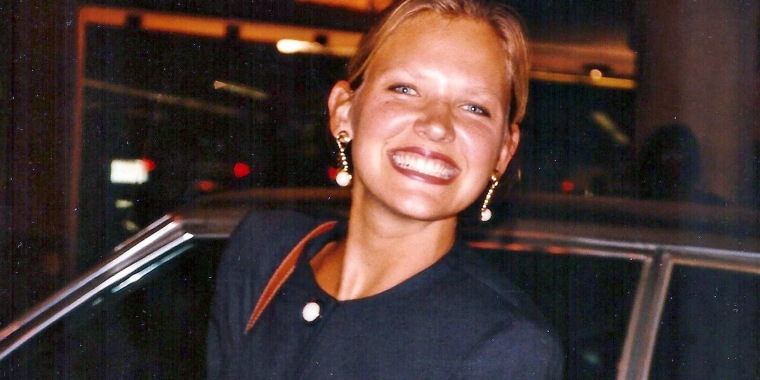I was trembling when I walked into Neiman Marcus a few weeks before my 30th birthday, woozy from my extravagant, atypical plan, and convinced that other shoppers were aware of my lack of élan. I didn’t look anyone in the eye, didn’t browse, didn’t allow any clerks to spray me with perfume. I walked directly to a salesperson in the handbag department and told her I wanted to buy the Louis Vuitton Keepall Bandoulière 60 — a $715 duffel bag. It was much larger than the version that I had coveted almost 20 years before, and that had maintained an undeniable hold on me ever since.
After my parents’ divorce when I was six, my mother worked at home part-time as a seamstress, modifying sumptuous gowns and dresses for an upscale boutique. Two memories stand out from that time: playing with the scraps of fabric, and her crying at night in her room. Despite her ceaseless efforts to feed and care for us, she was exhausted and we were broke.
A few years later, she remarried, and we entered a stable, middle-class life that for practical and pecuniary reasons valued moderation over excess of any kind. We ate most of our meals together at home, cleaned our own rooms, did our own laundry. We weren’t denied any essentials or even the occasional indulgence, but nor did we go on unplanned shopping sprees or wear designer clothes or eschew hand-me-downs. None of that mattered; I was grateful that my mother was happy. I’d begun to trust that things wouldn’t abruptly fall apart again.

Then, on the second day of sixth grade English class, a girl named Jennifer stood with her arms crossed in front of the seat I’d taken in the first row and demanded I give it up. “It’s mine,” she announced. The movement and chatter among the other students settled into a low, expectant thrum. She cocked her head at me, tossed a wad of waist-length curls over her shoulder and shifted her purse from one arm to the other. If I’d known the word back then, I’d have described her as cocksure. Never before had I encountered anyone with such presumptuous, arrogant confidence. I hadn’t even known such qualities existed in a person, much less in a petite, bespectacled 12-year-old.
“Please find another desk,” our teacher said to me. “Jennifer sat in that one yesterday.” Jennifer made a moue of satisfaction as I cleared out. Now seated a row over and a desk behind her, I, still under a kind of spell, studied Jennifer with a mix of awe and loathing: her loafers with bright pennies pushed into the straps, her walking shorts and preppy sweater, and most captivating of all, her Louis Vuitton Speedy purse with its signature monogram on brown canvas, cowhide leather trim and handles, and tiny brass padlock.
Never before had I encountered anyone with such presumptuous, arrogant confidence. I hadn’t even known such qualities existed in a person, much less in a petite, bespectacled 12-year-old.
My siblings and I didn’t get allowances, so we got jobs, and we used that money to buy ourselves the things our parents thought were too expensive or too frivolous. No matter how many nights I babysat, I’d never have been able to afford anything like a Louis Vuitton purse. That a sixth grader owned such a luxurious accessory was astonishing.
Along with her purse, Jennifer wielded an empyreal power. She had a deep, often booming voice, strong opinions, a quick temper and a snobbish contempt for frugality. Yet she was also funny and kind, ambitious and intelligent. I was equally terrified by and enamored of her and her place in the world. For the first time since my mother remarried, I worried that mere stability wasn’t enough. That keeping up with the Jennifers was how to keep things from falling apart.
Despite the friendships I enjoyed in high school, it was then that I began to realize what an oddball I was. I tried hard to emulate other girls’ fashion choices, interests, personality traits and social skills, but I could only manage to impersonate them — I couldn’t actually remake myself in their image. I accepted invitations to parties when I’d rather be taking photos of old buildings, went on dates when I’d rather be watching kung fu movies with my dad, went shopping when I’d rather be writing stories. Even my little sister wondered why I preferred staying home on Saturday nights with her instead of socializing with my peers. I graduated early, thinking I’d assimilate better once I was in college. I didn’t.

I brought my new prize home from the department store and admired it (the dust bag and box it came with were almost as delightful as the duffel itself), then put it carefully away. I couldn’t wait to take a trip; I could imagine myself handing my keepall over to an approving bellhop, who’d whisk it to my room on a shiny brass cart. When the opportunity arose, I pulled it out. It was stiffer and bulkier than I remembered, and fairly heavy even empty. Oh well, I thought. Maybe that was part of the glamour. My gate was at the far end of the concourse, and by the time I got there, my shoulder hurt. I wished it had come either with wheels or someone else to carry it for me. Nobody at the gate, on the plane or at the hotel treated me any differently than I’d ever been treated before I had the bag. I smiled at and spoke to people as I normally do, and they smiled and spoke back; no one appeared to notice what I was holding.
Nobody at the gate, on the plane or at the hotel treated me any differently than I’d ever been treated before I had the bag. I smiled and spoke to people ... they smiled and spoke back; no one appeared to notice what I was holding.
It wasn’t until I was almost 40 that I found my tribe, a group of women in my neighborhood whose kids were my kids’ friends. What we didn’t have in common we made up for with curiosity and deep respect that, over the years, has transcended friendship and become a sisterhood. Before meeting them, I was resigned to feeling like I’d always be just outside my social circles, even if I was finally able to purchase the things I thought would help me fit in. Since then, I’ve met and developed lasting friendships with other outsiders and underdogs, all of them kind, intelligent, funny, accomplished women who offer one another unconditional acceptance, support, love — and don’t care a whit about the kind of accessories we carry. Back in sixth grade, I’d thought of Jennifer’s purse more as armament than decoration, and mistakenly assumed that her material possessions gave her the personal characteristics I admired. It took many years to unpack that misconception and recognize that while owning a designer duffel (or other such belongings) can be truly satisfying, it doesn’t actually heal old wounds. It’s not a cure for insecurities. It won’t make someone stronger, better, safer or more worthy. It’s just a purse.

Not long ago, I posted an ad on Craigslist for my keepall. Except for that inaugural trip, I haven’t carried it since I bought it in 2001. It was too bulky to use for my usual purposes: days at the beach, weekends visiting my parents, summer vacations with my husband and kids.
The same bag retails now for almost $2,500. An elated young woman bought it from me for $700. Standing on my front porch, clutching it to her chest like a treasure, she said, “I’ve been wanting one of these for so long but couldn’t afford it. Why are you selling it?”
She looked about the age I was when I bought it. Would she understand what I meant if I were to tell her that despite its size, that bag held no magic? But maybe that would be unfair. Who was I to assume what she was looking for in a fancy vintage duffel? Maybe it would be different for her. I tucked the money in my back pocket and smiled.
“I just don’t need it anymore.”
Chris Cander's new novel, "A Gracious Neighbor," is out July 1, 2022.
